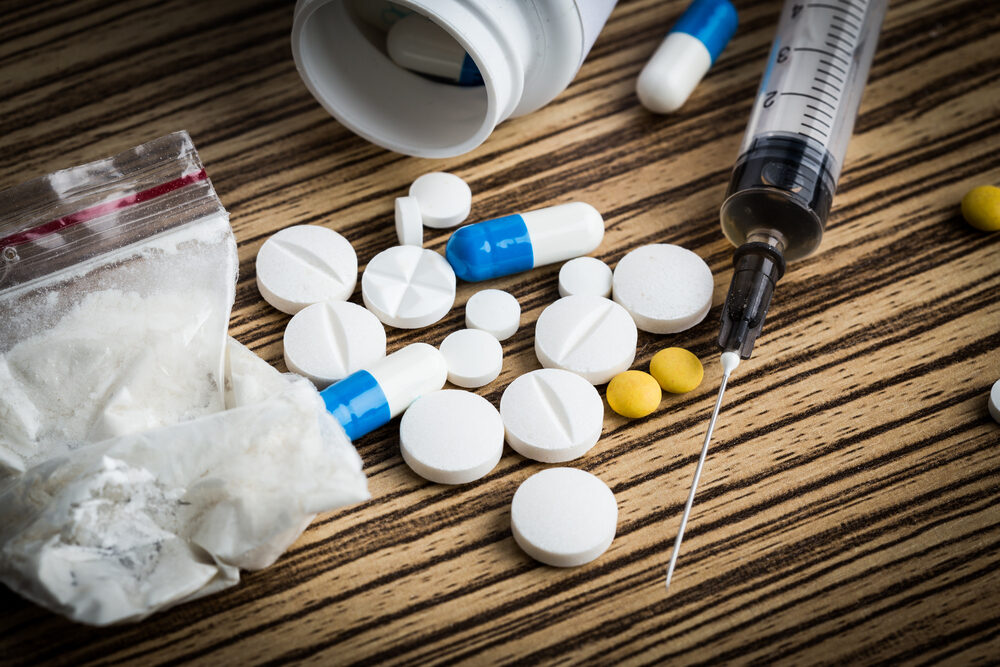Types of In Person and Online Care Options for Substance Use Disorders
Types of In Person and Online Care Options for Substance Use Disorders
For decades the primary option for receiving care for substance use disorders was at a free-standing clinic or hospital-based licensed program. Enter the Covid-19 pandemic. With every problem comes an equal or greater opportunity and the world has widened in its ability to provide care for those struggling with substance use. This blog will compare the strengths and weaknesses of in-person inpatient and outpatient modalities along with the various forms on virtual online and telehealth substance abuse treatment to help individuals decide which approach best matches their needs.
Inpatient Substance Abuse Treatment
Individuals who are experiencing or are likely to experience physical withdrawal from a substance may need an inpatient setting to safely detoxify the body from a substance or substances. There are a few good and healthy options for those in need of medical supervision and/or monitoring. While serious medical risk for coming off of a substance is mostly limited to alcohol and benzodiazepines like Xanax, the process of coming off of drugs like heroin and Fentanyl is so miserable and uncomfortable that the risk for relapse is significant. Inpatient detoxification programs have nurses 24/7 and have doctors supervising this medical treatment providing medication to get alcohol and drugs out of the body. Inpatient rehabilitation programs are often the next logical step down from a detox program. Inpatient rehab programs also have 24/7 nursing and doctors on-site for less intensive monitoring. Individuals in inpatient rehab programs will have access to a variety of groups, and access to physical and mental health care. However, lengths of stay in inpatient rehabilitation programs vary depending on insurance. Additionally, individuals may have real competing priorities, like a job they can’t afford to lose, that make staying at an inpatient rehab program difficult.

In our current state of care philosophically, individuals enrolled in inpatient programs are likely to be offered medication assisted therapy (MAT). There is a wide variety of MAT options to support recovery.
Methadone is used for opiate use disorders. It is considered an “agonist.” Methadone coats opiate receptors in a way that is similar to heroin. It provides the individual with a slower and more predictable euphoric effect like heroin. Some clients are able to maintain a functional lifestyle while using Methadone. Others who are more invested in the euphoric effect, remain engaged in a lifestyle of substance abuse, and use Methadone in conjunction with other substances.
Suboxone, or it’s injectable form Sublocade, is a “partial agonist.” Suboxone provides individuals with some of the euphoric effect similar to Methadone, but it also contains Naloxone to block opiate receptors. The risks and benefits of partial agonists are similar to Methadone, with one added risk. Suboxone comes via a prescription, whereas Methadone (though efforts are underway to make it more accessible) is taken at a licensed clinic where doses are mostly given daily and monitored. As Suboxone can be picked up at a pharmacy, it has a higher likelihood of diversion-meaning that one can pick up their prescription, and if so inclined can sell their Suboxone on the street for heroin. Conservative estimates indicate that 25% of individuals misuse Suboxone. This is not possible for those on Sublocade, as it comes in the form of a once-a-month injection.
Finally, the 3rd main option for MAT is Naltrexone and its injectable form Vivitrol. These medications are “antagonists.” They can be used for alcohol and opiates. Unlike Methadone and Suboxone, these antagonists block receptors and prevent the individual from getting drunk or high. Because they do not provide the euphoric effects of the previous medications, Naltrexone and Vivitrol have no street value, and therefore are not likely to be misused. Vivitrol offers the most protection as a once-a-month injection, whereas Naltrexone is a pill, and the individual can simply choose to stop taking it in order to return to use.
*Readers Note- If you are considering whether to utilize MAT or not, recovery is a program of honesty. Ask yourself what my history tells me. If I have tried to get sober in the past, unsuccessfully, maybe it’s time to try something different. You are not unsober if you are taking medications to support your recovery, as long as the use of the medication is done in pursuit of the goal of living a more meaningful and purposeful life. Other considerations like is it safe for me to drive to work under the influence of medications may dictate whether you want to take MAT or which ones are safe to utilize given your particular circumstances. None of these MAT’s are going to be effective if you return to illicit drug use that may be tainted with drugs like Fentanyl.
Residential Substance Abuse Treatment Programs
Sometimes, the lifestyle of use is so significant that a long-term residential substance abuse treatment program, in which individuals reside in an inpatient treatment setting to rebuild a sober life. Residential programs are also places where you are likely to be offered MAT, and can help you to develop long-term skills such as vocational training to help transition back to a more normal life. These programs can be very helpful to many people. However, unless you are on state/federal insurance like Medicaid, these programs can be tremendously expensive, and the vast majority of residents in these residential settings are Medicaid recipients.
Outpatient Substance Abuse Treatment Programs
In person outpatient substance abuse treatment programs are the more traditional approach to help people in need of substance use disorder treatment who are not in need of inpatient medical care. In outpatient programs, participants travel from their homes to receive an assessment, diagnosis and treatment in the physical location of the treatment program and must adhere to the specific programs schedule. Outpatient programs are also likely to offer MAT, as well as group-based treatment sessions to help you bond with others struggling with alcohol or drug use. Benefits of going to outpatient programs include the ability to connect in-person to other program participants, but there are also several barriers to utilizing outpatient substance abuse treatment programs.
- Transportation to and from treatment, especially in rural areas.
- Stigma associated with attending treatment at a local program where you may encounter people you know.
- Free standing outpatient programs often place people together with varying degrees of motivation. You may be mixed in groups with people who are still actively using substances.
- Many outpatient programs are hot beds for drug dealers who hang around the program building waiting to entice participants to buy drugs.
- Insurance co-pays for licensed outpatient programs can become prohibitively expensive.
- Insurance companies determine how long treatment is necessary, rather than the person seeking care, or the provider.
Online/Virtual and Telehealth Programs
The Covid-19 pandemic came in the middle of a nearly decade long opioid epidemic. It forced providers for those suffering from substance use disorder to look for new ways to deliver services. Creative, non-traditional approaches to reach out and help those struggling with substance abuse are more important than ever. However, choosing the right online program can be confusing and challenging.
Essentially, whether it’s called online, virtual or telehealth, the meaning is the same. Instead of going to a brick-and-mortar program, you can receive the services you need discreetly on your phone, tablet or computer in the comfort of your home or wherever you may be. There are many virtual substance abuse programs that are merely off-shoots of free-standing outpatient programs. Individuals who enroll in these programs generally have to adhere to the schedules of these programs, and are left to figure out whether they can match their schedule around the schedule of the treatment program. Additionally, as licensed programs, they are subject to the same insurance rules and restrictions as traditional in person programs. These programs yield mixed results in terms of attendance and engagement.

Fully online private programs also have pros and cons. Many of the most popular online mental health programs are for one-on-one treatment sessions. However, groups and group therapy have long been considered a best practice for individuals with alcohol and drug issues. While it may be preferable for an individual to seek individual help, most addictions experts agree that group work is extremely significant and impactful for helping individuals with substance use disorder.
Additionally, there are several online addiction programs that offer self-help books, combined with pre-recorded videos and workbooks for one combined price. These programs perpetuate the loss of human connection, which is a natural consequence as a lifestyle of abuse progresses. Some of these programs can connect people with providers to assist individuals who also wish to be on MAT.
There also exists several cohorts of programs that rely on peers’ support, and offer some individual sessions sandwiched around open support groups. While these peer-facilitated programs can serve a helpful purpose, they are not much different from 12-step programs that are free, and are offered both in person and online. A licensed professional like a Licensed Mental Health Counselor or Social Worker may be best equipped to deal with underlying issues of depression, anxiety and low self-esteem, while also able to work with issues of relapse prevention and dealing with urges cravings and temptations.
The biggest challenge for online help for alcohol and drug abuse is the need to recreate the “in person” experience online. There is nuance and human connection that comes from sharing with and listening to others who are struggling with the same challenges as you, and who are working towards the same outcome as you— sobriety, restoration of relationships and a life with meaning and purpose. Sober at Home is an online program that offers professional support, education, information and encouragement for individuals struggling with alcohol and other substance use through group therapy led by an addiction specialist. It is an alternative to traditional brick and mortar treatment. Our goal is to help individuals restore themselves to meaningful, purposeful and sober lives. Sober at home employs skilled, licensed and credentialed professionals across the country. Our flexible scheduling allows individuals to utilize an array of services at an affordable price that fits into their schedules. Those who are on MAT are welcomed to participate in services offered by Sober at Home. For more information contact us at [email protected] or call us at 855-52-Sober. You can follow Sober at Home on all social media platforms including Facebook, LinkedIn, Twitter and Instagram. We believe in everyone’s capacity to change.